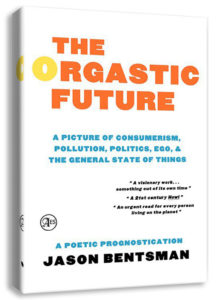My Grandparents
There are no photographs
of who they were
what they did
One was beautiful
with hair like the sun
setting in late August
but more pale
Another was slow, a third fat
with fingers so strong
they never let go
The last, a wanderer
who became lost searching
for work in Galicia
They come to me
as I sit after breakfast
in the kitchen
and I tell them
the truths I have found:
Time is a windmill
the world exhales each day
inhales each night
Friends come to us
when we are dying
or struggling with mysteries
or joyfully shedding our skin
in summer on a beach
somewhere
Don’t worry, I tell them,
we are never alone
And I tell them stories,
true ones, like this:
Once in an airport
while I sat alone, writing
a poem about Primo Levi’s
death in Turin
An Asian woman walked
back and forth near me
singing deep in her throat
de de tay
de de tay tay
de de tay
and she stayed by me
singing
singing
until I finished
the lines about Levi’s
guilt and forgiveness
in the moment before
he threw himself down
to his death
on the stairs
in Turin
She did not see me
hearing her song
as she walked there
singing
her song
as deep in her throat
as Jesus or love
as deep in my throat
as it was in hers
de de tay
de de tay tay
de de tay
And when I tell my grandparents
this story, they sit
in their brown suits
and dark babushkas, smiling
and nodding as if they
understood my words, as if
my English was their Polish
—About the poet, John Guzlowski
It Is All Undone
“Many and splendid are the works I have wrought”
—Adonai
I.
A solitary bird traverses the blasted heath,
where life has been forsaken.
I dug myself in a hole,
and yet the Father reached down
with his hand to lift me.
I gouged holes into myself,
and yet the Son had mercy on me.
But now I have sinned against the Spirit
and cannot be forgiven.
I have learned to climb
out from hell after inviting its worst to try me.
I have traveled casually
through many-dimensional cities.
All the while I would slip
into the doing of unspeakable acts,
knowing full well God
is massive enough
to erase it all.
No cycle too cruel to jump
into and out of, no addiction
too abysmal for my visitation.
But now I have sinned against the Spirit
and cannot be forgiven.
Turn your head as I walk past—
you want no part of this
that I’ve become.
I draw my power from the darkness,
I would bring down all humans
with me— what is that to me?
For I have sinned against the Spirit
and cannot be forgiven.
II.
“Look!” A solitary bird traverses the blasted heath—
and sings.
Just then, he and I shared
our two souls.
He took what was turned in me
and let it into his heart,
and replaced it,
now a thing quite new.
No one could believe this. “Look!”
Over the blasted heath— the birds are
returning to the place that God had denied
life for three blackened years.
I once sinned against the Spirit
but I have been forgiven
because I sin no more.
I have returned from the waste and void.
—By S.W. Whelan. From the poetry collection Holy Hell
A new translation of the poem Corona by Paul Celan—
haunted examiner of the Holocaust, and one of the most renowned poets
to emerge post World War II— from the German by Matthew Saks
Corona
Autumn eats a leaf from my hand: we are friends.
From the nuts we shell time, and we teach it to walk:
time returns to the shell.
In the mirror it’s Sunday,
in the dream there will be sleeping,
the mouth speaks the truth.
My eye descends to the sex of my lover:
we look at each other,
we speak darkly,
we love one another like the poppy flower and memory,
we sleep like wine does in mussels,
as the sea in the bloody light of the moon.
We stand embracing in the window, people see us from the street:
it is time that they knew!
It is time that the stone consented to bloom,
that a heart beat with restlessness.
It is time that the time come.
It is time.
* * *
Corona
Aus der Hand frißt der Herbst mir sein Blatt: wir sind Freunde.
Wir schälen die Zeit aus den Nüssen und lehren sie gehn:
die Zeit kehrt zurück in die Schale.
Im Spiegel ist Sonntag,
im Traum wird geschlafen,
der Mund redet wahr.
Mein Aug steigt hinab zum Geschlecht der Geliebten:
wir sehen uns an,
wir sagen uns Dunkles,
wir lieben einander wie Mohn und Gedächtnis,
wir schlafen wie Wein in den Muscheln,
wie das Meer im Blutstrahl des Mondes.
Wir stehen umschlungen im Fenster, sie sehen uns zu von der Straße:
es ist Zeit, daß man weiß!
Es ist Zeit, daß der Stein sich zu blühen bequemt,
daß der Unrast ein Herz schlägt.
Es ist Zeit, daß es Zeit wird.
Es ist Zeit.
About the translator, Matthew Saks
About the poet, Paul Celan
A poignant, plangent, exhilarating, Spanish, Eastern European, gypsy, folk, classical influenced improvisation on guitar by Andrey Zimin, which I recorded on my phone when it was happening, and spontaneously gave the somewhat ponderous yet somehow fitting title. Second guitar: Andy N.




Recent Comments